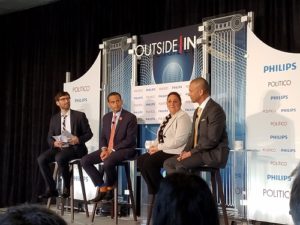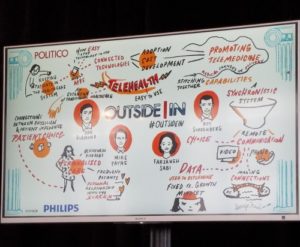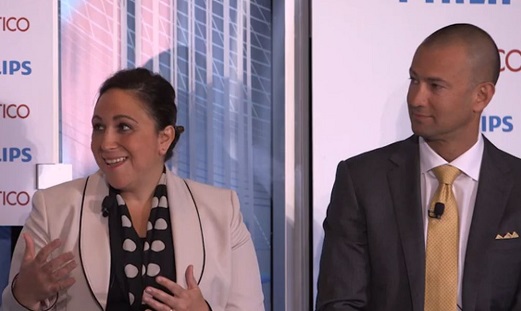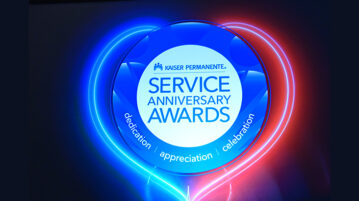 Our Mid-Atlantic Permanente Medical Group (MAPMG) physicians provide the highest level of care and knowledge in all that they do to serve our members, and one of our own was recently tapped for her expertise on home health care and technology. Dr. Farzaneh (Fazi) L. Sabi, Associate Medical Director of Hospital Operations, Perioperative Services, Utilization and Case Management and Network/Contracting for MAPMG, recently participated in a POLITICO Pulse event called “Outside, In: Bringing Health Home: Tech and Patient-Centered Care.” Joining Dr. Sabi on the June 9 panel discussion were Mike Payne, Chief Healthcare Development Officer for Omada Health, and Dr. Roy Schoenberg, President and CEO of American Well.
Our Mid-Atlantic Permanente Medical Group (MAPMG) physicians provide the highest level of care and knowledge in all that they do to serve our members, and one of our own was recently tapped for her expertise on home health care and technology. Dr. Farzaneh (Fazi) L. Sabi, Associate Medical Director of Hospital Operations, Perioperative Services, Utilization and Case Management and Network/Contracting for MAPMG, recently participated in a POLITICO Pulse event called “Outside, In: Bringing Health Home: Tech and Patient-Centered Care.” Joining Dr. Sabi on the June 9 panel discussion were Mike Payne, Chief Healthcare Development Officer for Omada Health, and Dr. Roy Schoenberg, President and CEO of American Well.
The panelists discussed how telemedicine is emerging as an extension of traditional medicine and how technology is making it possible for so many more people to have access to care who may have not had the opportunity before. “From the integrated delivery system perspective, telehealth in all different modalities—whether it’s secure messaging, telephone encounters, video visits, or remote monitoring—has been a true game changer in terms of access for care and convenience to care,” Dr. Sabi said.
The panelists were asked, in a perfect health care system, how much in-person contact should we really have? “We do a lot of our communication with our patients remotely via secure messaging, telephone, and video visits,” Dr. Sabi stated. “I think that if you need to touch something or do a procedure, or something that truly needs hands-on, that’s when you need the face-to-face in person. Everything else can be done remotely.”
 A key point in the discussion was that telemedicine must be viewed as a supplement in the broader spectrum of a patient’s health, and not as a replacement for in-person connection. Dr. Sabi, who also sees patients as an OB/GYN, noted, “One of the most powerful and important tools and resources we have is that connection between a patient and their physician. If we look at the long-term health of a population, it’s those connections that are imperative to being able to have difficult conversations and help our patients make those choices. We need to make sure we establish that connection between physician and patient and use technology as a tool to further those communications, but not as a replacement.”
A key point in the discussion was that telemedicine must be viewed as a supplement in the broader spectrum of a patient’s health, and not as a replacement for in-person connection. Dr. Sabi, who also sees patients as an OB/GYN, noted, “One of the most powerful and important tools and resources we have is that connection between a patient and their physician. If we look at the long-term health of a population, it’s those connections that are imperative to being able to have difficult conversations and help our patients make those choices. We need to make sure we establish that connection between physician and patient and use technology as a tool to further those communications, but not as a replacement.”
Dr. Schoenberg emphasized the importance of telehealth beyond urgent care and how it’s making access easier for the elderly or disabled who, in particular, may have difficulty accessing care in person due to mobility issues. “The value of telehealth is primarily in allowing health care to be extended to people who need it regularly,” he said.
To watch the entire panel discussion, visit POLITICO’s website here, and read more coverage about the panel here.




